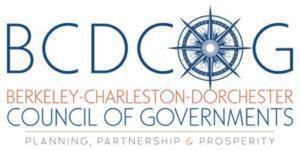News
BCDCOG Awarded $860,000 Grant for Transit-Oriented Development Planning
The Berkeley-Charleston-Dorchester Council of Governments (BCDCOG) has been awarded $860,000 to plan for transit-oriented development (TOD) along its proposed 21.5-mile Lowcountry Rapid Transit (LCRT) line.
The funding from the US Department of Transportation’s Federal Transit Administration will be applied to a second phase of TOD planning, following an initial award in 2018. Phase 2 focuses on development of a strategic plan for implementing equitable transit oriented development that includes a mix of commercial, residential, office and entertainment centered around or located near transit stations.
“Transit-oriented development along the LCRT line will enhance community connections to food, jobs, education and healthcare,” said BCDCOG Executive Director Ron Mitchum. “Walkable, mixed-used, vibrant and connected communities are the clear vision of this effort.”
This month, FTA awarded approximately $11 million to 20 projects in 12 states via its Pilot Program for Transit-Oriented Development (TOD) Planning. The goal is to support comprehensive planning efforts – including land use planning – to improve access to public transportation.
“Transit-oriented development offers easier, more affordable access to jobs, health care, school, shopping, and other daily needs,” said U.S. Transportation Secretary Pete Buttigieg. “We’re pleased to award this funding to help more communities develop around transit in a way that reduces pollution, increases economic opportunity, and contributes to affordable housing.”
Comprehensive planning funded through the pilot program must examine ways to improve economic development and ridership, foster multimodal connectivity and accessibility, improve transit access for pedestrian and bicycle traffic, engage the private sector, identify infrastructure needs, and enable mixed-use development near transit stations, per FTA.
In the Berkeley-Charleston-Dorchester region, funding will fill the gap needed to employ TOD tools developed in Phase 1, including:
- Equitable Infrastructure and Housing Needs Assessment
- Fiscal Impacts/Benefits Analysis of Equitable TOD Strategies
- eTOD (equitable TOD) Implementation Support – Codes, Ordinances, Affordable Housing Development and Adoption
- Market Assessment and Community Viz Update
- Public Engagement
The region has a shortfall of 10,000 affordable housing units for those earning less than $35,000. Without intervention, this shortfall is projected to grow to 34,000 by 2040. Cost burdened households paying more than 30% of their income towards housing have grown by 42,000 since 2000, faster than the population rate. There is significant need for affordable housing in the region, and even more in the corridor where 27% of owners and 52% of renters are housing cost burdened.
LCRT is expected to have a transformational impact. Affordable housing protections and development near transit will provide a safety-net for renters and greater access for the region’s vulnerable populations.
Rapid growth in the region has elevated a need for regional action. The results of this phase will support planning needs to budget and program multimodal investment in station areas that reduce car trips and emissions while supporting the transit line.

























